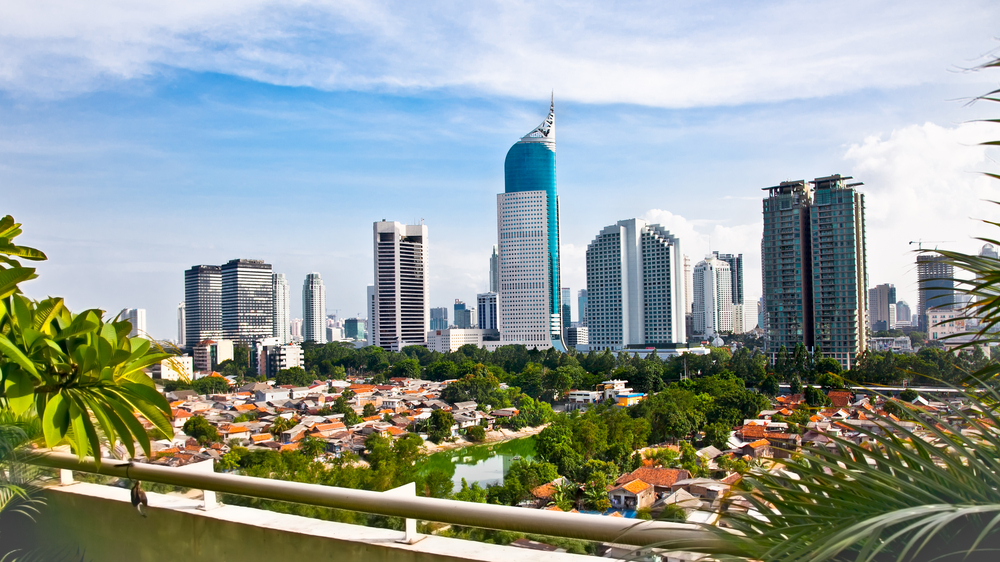Joko Widodo’s First 100 Days in Office

Please note that we are not authorised to provide any investment advice. The content on this page is for information purposes only.
Distinguishing the first 100 days of President Joko Widodo (Jokowi) and his government are historic reforms to fuel subsidies, social assistance to the poor, streamlined investment licensing and virtually no new restrictive regulations on foreign trade. Fuel subsidy reform has given the government fiscal space for infrastructure development. However, if Indonesia is to attract greater foreign investment, there is still scope to promote openness and regional integration in what is a critical year for Indonesia’s involvement in international trade agreements.
Distinguishing the first 100 days of President Joko Widodo (Jokowi) and his government are historic reforms to fuel subsidies, social assistance to the poor, streamlined investment licensing and virtually no new restrictive regulations on foreign trade. Fuel subsidy reform has given the government fiscal space for infrastructure development. However, if Indonesia is to attract greater foreign investment, there is still scope to promote openness and regional integration in what is a critical year for Indonesia’s involvement in international trade agreements.
Jokowi overhauled fuel subsidies amid fortuitously tumbling world oil prices. On 17 November 2014, the government increased subsidised fuel prices by 31 percent for gasoline and 36 percent for diesel. On 1 January 2015, subsidies for premium gasoline were essentially removed. The government adjusts the price of gasoline monthly, in line with the international crude oil price. A fixed subsidy of 1000 rupiah per litre for diesel and kerosene replaces a fixed price. This overhaul marks an important step towards a market-based price mechanism. The scheduled monthly adjustment could still be undone. The real test will come when oil prices rise again.
In the lead-up to fuel-subsidy reform, the government took steps to mitigate the impact of higher transport and food prices on vulnerable households. This included providing 15.5 million disadvantaged households with 200,000 rupiah per month in November and December, as well as expanding publicly funded education and health care. Importantly, cash assistance was provided as electronic money, which is expected to help address Indonesia’s low financial literacy.
Lower world oil prices were a double-edged sword for the revised budget, approved by parliament in February 2015. While natural-resource revenues fell, the fuel subsidy overhaul reduced government expenditure. The budget is still in deficit. Reduced expenditure on subsidies has enabled the government to earmark increased funding for infrastructure that will improve connectivity, both on land and at sea, and upgrade irrigation and machinery in agriculture.
Jokowi and his government have much to do to improve the country’s trade performance. They inherited a number of protectionist policies from the previous Susilo Bambang Yudhoyono (SBY) administration, which now inhibit trade performance and restrict foreign investment. The average tariff rate fell during SBY’s second term, but the use of disguised non-tariff barriers increased.
In late 2013, for example, the SBY government launched a new, more restrictive negative investment list. This list was followed by Law 7/2014 on Trade, which provided direction on regulating trade activities and, if necessary, using more protectionist policies. The SBY government also passed Law 20/2014 on Standardisation and Conformity Assessment, which supports the application of national standards to manufactured products. Some domestic businesses have already used it to defend against imports.
The question is whether Indonesia’s past protectionist attitude will change under Jokowi. Indonesia’s National Medium-Term Development Plan 2015–19 sets the international trade objectives of increasing non-oil-and-gas exports by 11.6 percent and raising the services trade-to-GDP ratio to 3.5 percent by 2019. The plan includes using trade diplomacy more effectively and increasing Indonesia’s participation in global value chains. This suggests that Indonesia may be willing to pursue a more open trade policy. Yet it also includes a plan to review existing trade agreements and to better manage imports as a way of increasing the competitiveness of Indonesia’s exports.
Trade Minister Rachmat Gobel indicated in October that one way for Indonesia to improve its competitiveness would be to safeguard its domestic markets. A similar strategy failed during Indonesia’s policy of import substitution in the 1970s and early 1980s. Indonesia would be better off liberalising its goods, services and investments, as it did in the mid-1980s and 1990s.
Jokowi’s own statements have provided little clarity on the direction of Indonesia’s trade policy. During the APEC CEO Summit in Beijing on 10 November 2014, Jokowi urged APEC business leaders to support economic development in Indonesia and expressed his country’s need for foreign investment. Yet, during the following APEC Economic Leaders’ Meeting, he suggested that Indonesia would be careful in opening its economy further and in conducting trade negotiations.
We do know that the Jokowi administration has not introduced any truly restrictive regulations, aside from plans to require commodities exporters to place their export revenues in the domestic banking system. The administration is strictly enforcing existing import regulations. In December 2014, more than 2100 registered importers had their licences suspended for not providing written quarterly reports on their import activities.
This year is critical for Indonesia’s position in ASEAN. The ASEAN Economic Community will launch on 31 December, but Indonesia may struggle to meet all of its commitments as part of this community. Indonesia is having difficulty negotiating the details of ASEAN’s Regional Comprehensive Economic Partnership, which seeks to harmonise the six current free-trade agreements between ASEAN and its trading partners. Indonesia should endorse this economic partnership, as its success would benefit the region.
Indonesia has also yet to recommence trade negotiations with South Korea, the European Free Trade Association and the European Union, which were postponed in 2014. Competitiveness goes hand in hand with competition. Competition encourages producers to work efficiently and eliminates rent seeking. What lies ahead for Indonesia is to welcome foreign participants and make the most of their presence.
Economic reform in Jokowi’s Indonesia is republished with permission from East Asia Forum




